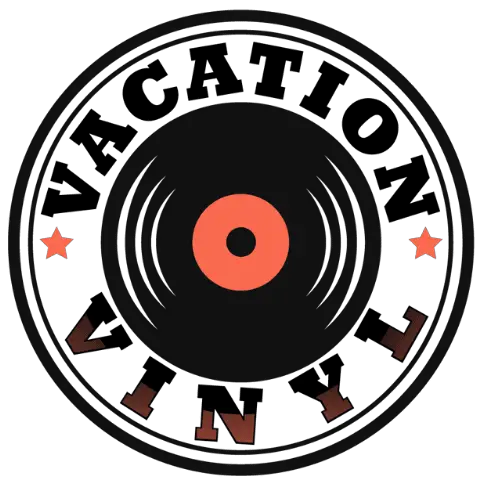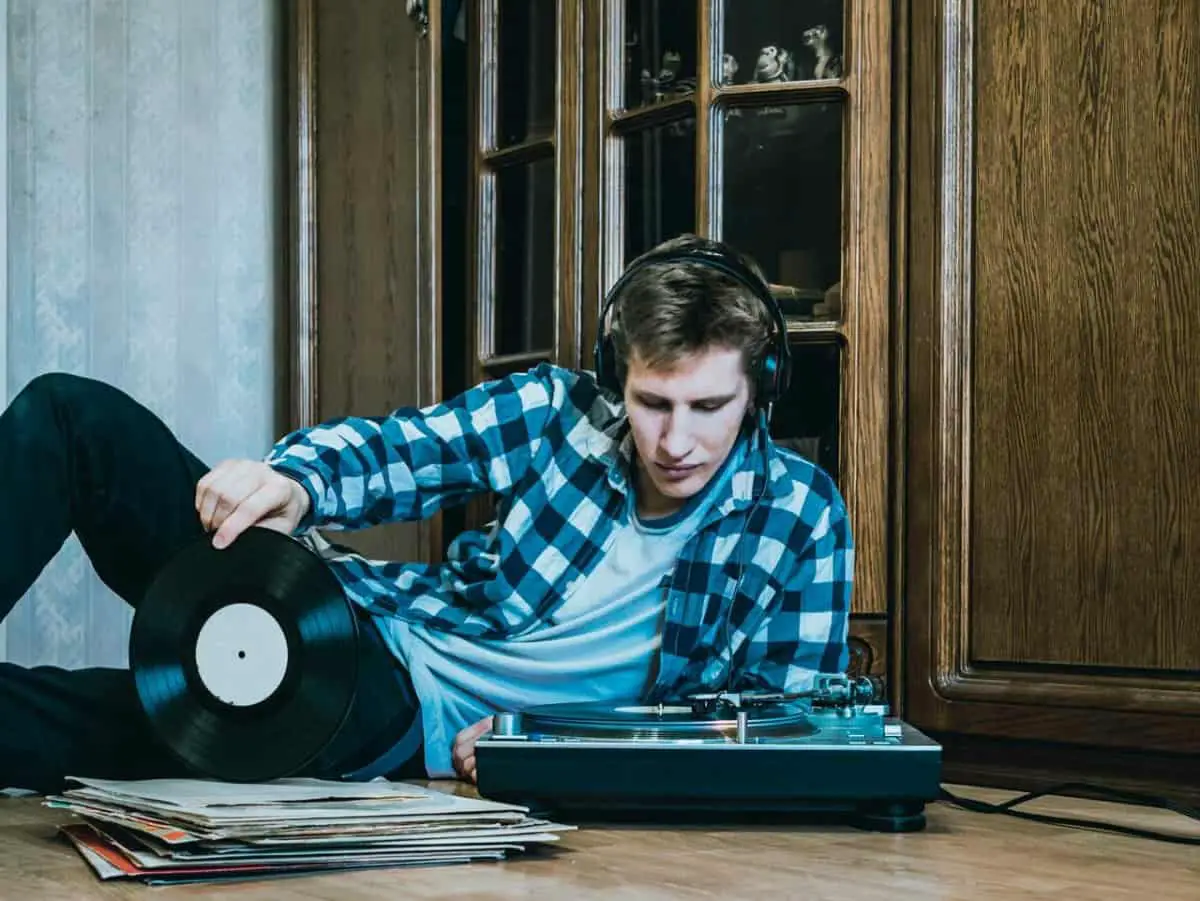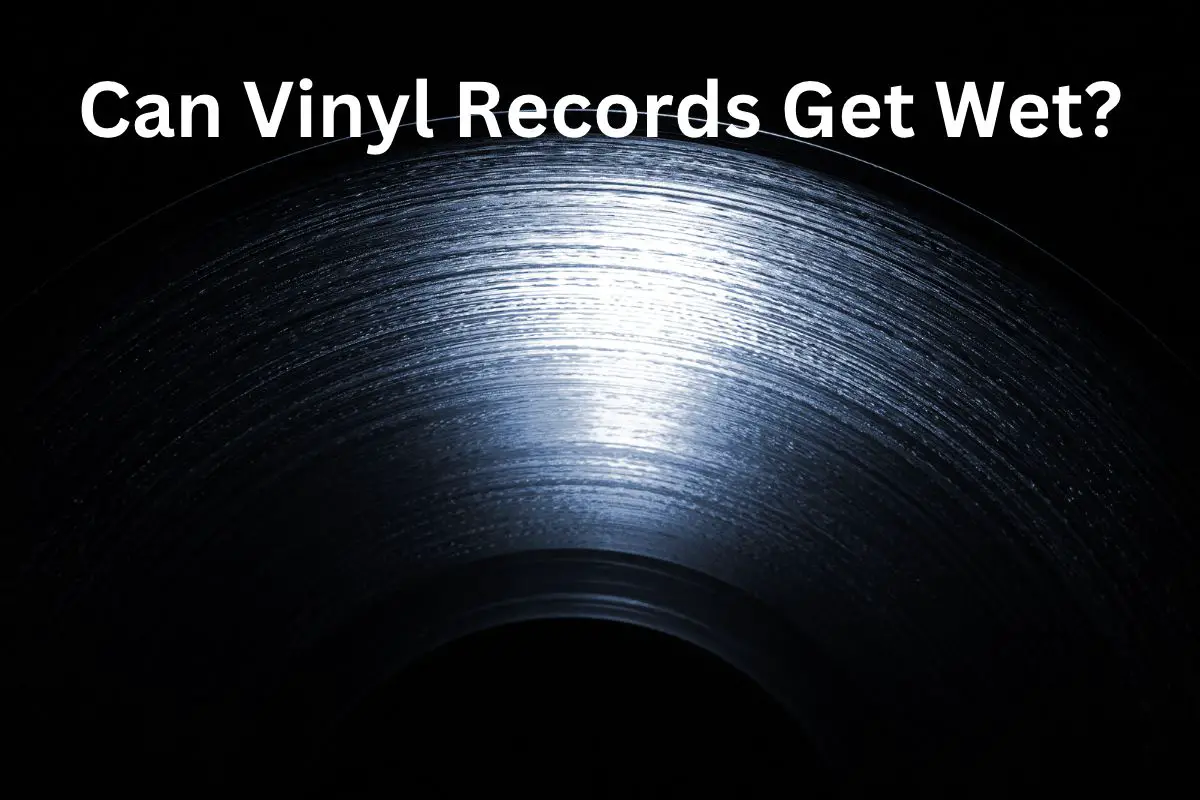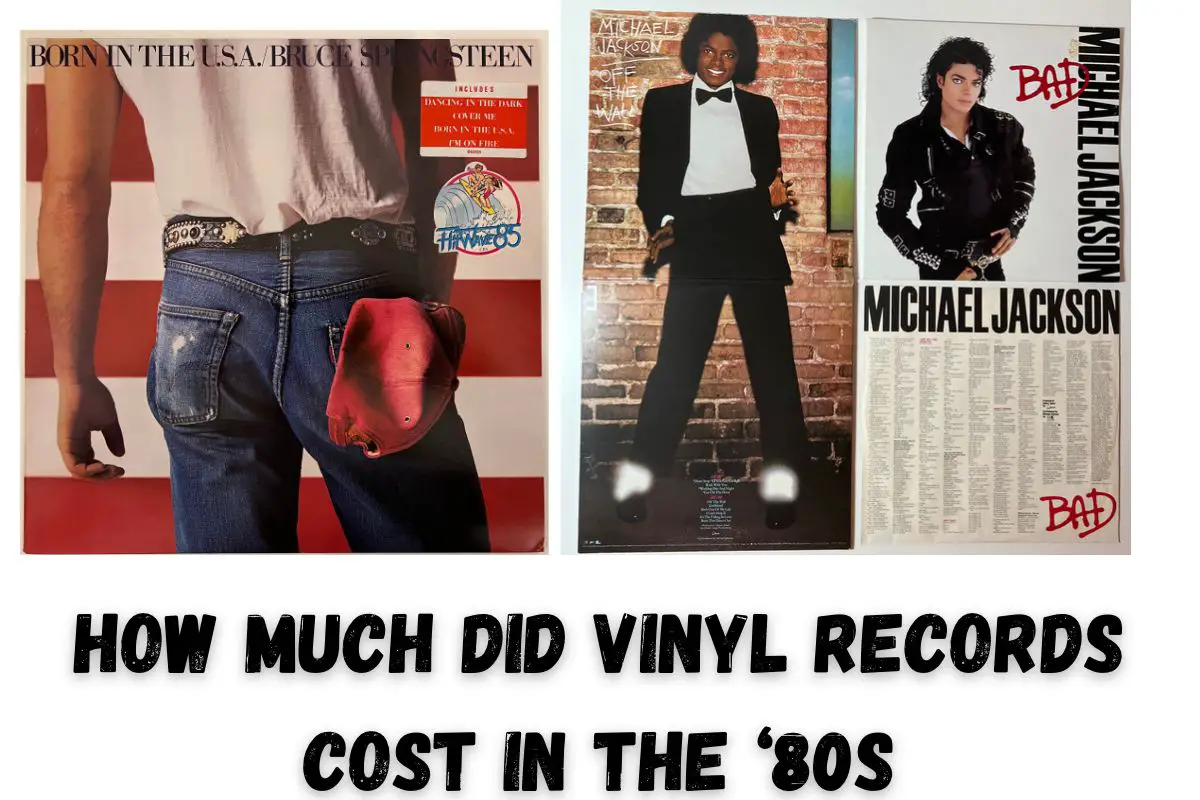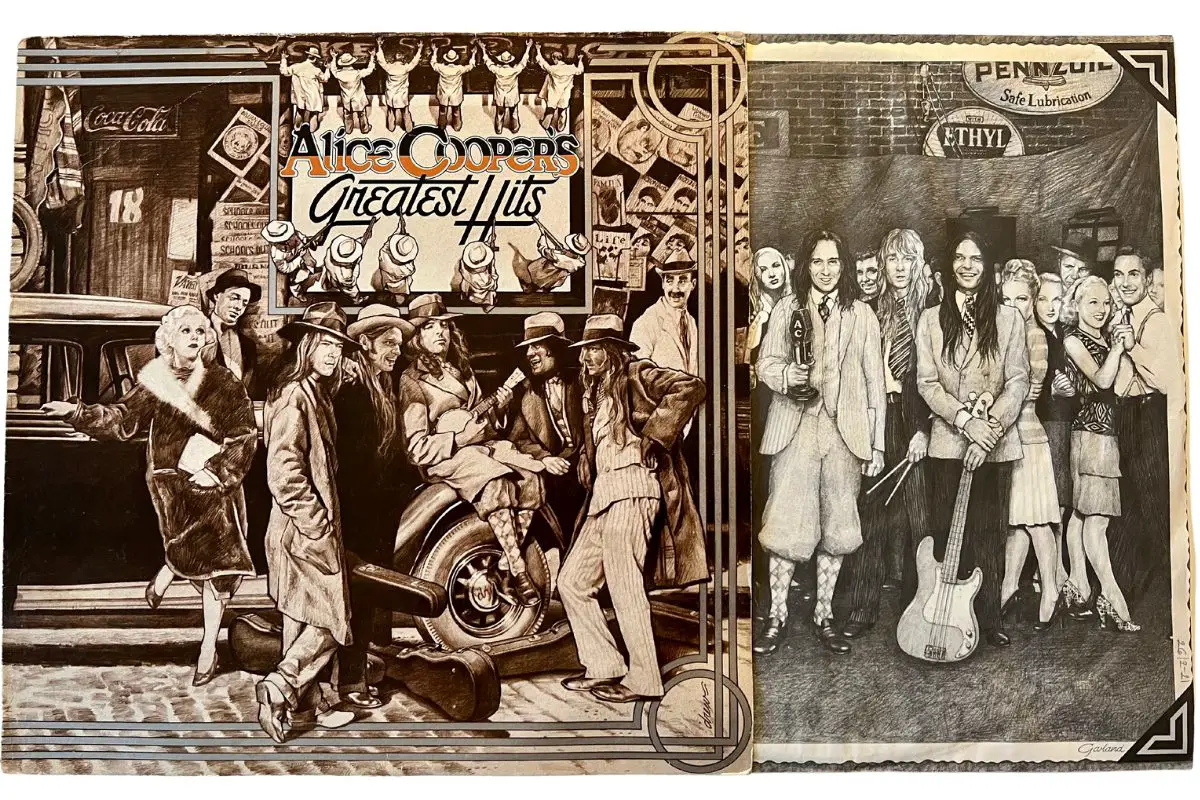This post contains affiliate links.
What happens when vinyl records end? Numerous questions may intrigue many curious audiophiles or even non-vinyl listeners due to the very impeccable construction of the vinyl record player. However, fret not as we will try to uncover the answers beyond these queries.
Vinyl records will leave their needles simply threading throughout the vinyl surface without the auto-stop feature, resulting in a white noise-like sound and an endless spinning. Those with the auto-stop feature will keep spinning for a few rounds before stopping completely. (1)
This article will talk about what will happen when your vinyl record ends, the damage it will deal with, and how to prevent it. Let’s get started!
Table of Contents
What Happens When Vinyl Records End?
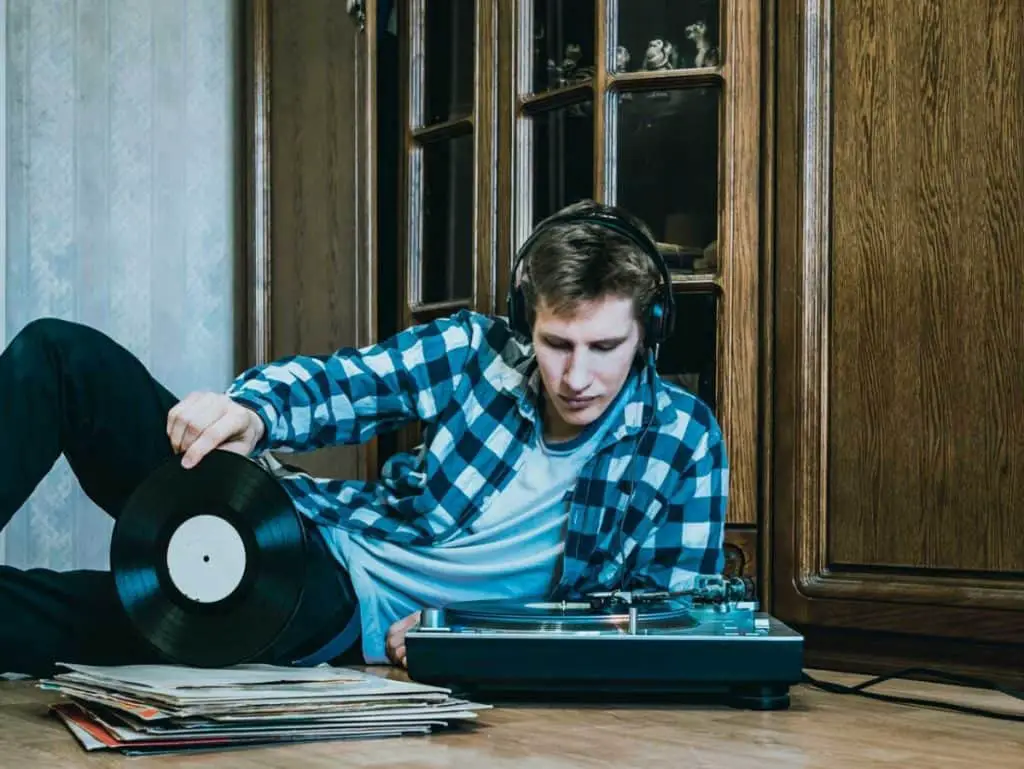
Vinyl records are amazing inventions, such that their very shape and form dictate their output, unlike other forms of data storage options. For example, USB disc drives do not visually exhibit changes when an alteration is made to the data inside, as it does with cassette tapes and compact disks. This non-changing form is because all these other forms of data are digital, while vinyl records are analog.
Being “analog” technology has many implications, like how an analog clock needs to have its arms physically moved to show the time or how old telephones require people to spin the dial around; they will require more physical effort to operate than other digital formats.
In other terms, not only are they analog, but most are manual as well. We can also think of this philosophy for the vinyl disks and record players.
From pressing play to pausing and even stopping, vinyl disks most of the time are manually operated. With that in mind, what happens when vinyl records end?
For Vinyl Records Without Auto-Stop, It Means Endless Spinning
So far, in this article, we have talked continuously about the analog story of vinyl records, and you can quite see a pattern here. For example, vinyl records, especially those without tonearm lifts or cueing levers, will require the users to lift the tonearm first before stopping the vinyl record altogether.
That is right; you will need to raise the tonearm first before you can stop the vinyl record player from preventing unsolicited damage.
This pattern repeats repeatedly; for example, when trying to play vinyl records, you must first know the speed appropriate for your specific disk. To a veteran audiophile in the vinyl industry, this is nothing more than just a minor inconvenience, or at its best, is considered as part of the experience. To the newbie, however, this seems like a convoluted process.
Hear me out; my point here is not to tell you that the record players and vinyl, in general, are too complicated. My point here is that the very experience of the vinyl itself includes these somewhat mundane interactions that, at the bottom line, contribute to a holistic vinyl listening experience.
So what happens when vinyl records end? Because a vinyl record with no auto-stop has no inherent mechanisms to stop itself, it will never stop spinning.
The truth is, it doesn’t even know that the vinyl record on its platter has ended already. Unlike compact discs that are programmed to return to the main menu when it ends, vinyl records have none, unlike the cassettes with physical mechanisms indicating the end of the tape.
The set of instructions a vinyl record has is simple:
- Turn the platter.
- Read on what the needle detects.
- Convert the data into audio information.
This audio information then undergoes conversion into audible music.
For Vinyl Record Players With Auto-Stop, They Automatically Stop
The world of vinyl and vinyl records has shifted dramatically over the past few decades. Although we have made our point earlier about these nuanced complexions as a part of the vinyl experience, still, some find it more convenient to have automatic options.
For example, some turntables nowadays contain a cueing mechanism that will lift the tonearm immediately after pressing stop, eliminating unnecessary steps.
We can also apply the same story to what happens when vinyl records end. With the invention of the auto-stop mechanism, also known as the auto shut-off mechanisms of vinyl records, your needle will no longer be grinding on your vinyl records even after it has already ended. Believe it or not, this used to be a common problem way back when auto-stop was still a figment of the imagination. (2)
Auto-stop works differently than you think; for instance, auto-stop needs to be turned on first, a feature easily enabled by flipping the switch to the ON position (most commonly placed at the back of the record player). So if you think that it is enabled automatically, you might want to double-check.
The ON and OFF switch also provides the owners a sense of agency or autonomy within their turntable’s features and functions in the instance they want the whole experience.
One crucial thing about auto-stop is that it does not halt immediately after the vinyl record ends. For example, it will at least take eight to ten rotations of the platter (approximately 30 seconds) before the auto-stop comes into play. This thirty-second transitional phase is not a limitation but a feature, as some vinyl records contain audio that some audio producers may only place at the end of the record itself. (2)
However, some people may still prefer the old but gold automatic turntables, which I respect tremendously. It is not easy to take care of a vinyl record using completely manual features.
Now, back to the story as to what happens when a vinyl record ends, well, there seems to be a dark side as well. It simply does not end with just endless playback, but some damage as well.
Is It Bad To Leave A Record On The Turntable? What Happens When Vinyl Records End? Your Vinyl Record Players May Get Damaged
Before we go out and discuss the damage in leaving your turntable turning after a vinyl record ends, we must first get something straight so as not to spook you and make you feel guilty. In the instance that you might have left an ended vinyl record turning overnight, you can assure yourself that doing this once may have incurred damages but probably not to a significant degree.
However, leaving your vinyl record players turning even after your vinyl has ended may leave substantial consequences.
Suppose you have read our previous articles (or we still will inform you anyway). In that case, the needles in your turntables consist of highly durable material, most of them made with diamond or sapphire. This impeccable durability would mean that only a significant few can damage your vinyl record player’s needle.
So if it is that durable, what is the matter then? Well, we are not that necessarily worried about your vinyl’s needle. What we are more concerned about is your vinyl record.
So what happens when vinyl records end? Well, if you leave them there turning overnight, they might get scratched by the needle of your vinyl record itself.
Also, a lot can go wrong as well.
If the needle gets stuck, it may end up creating deep grooves, which can interfere with the vinyl record’s tracks, rendering the record damaged or unusable.
Another probable event that may occur is that it will induce unnecessary stress on your turntable, resulting in broken gears and mechanisms. (3)
Leaving your turntable overnight should be no issue, as long as it is threading on actual vinyl tracks. However, when the record ends, the damage will start to appear. (3)
Frequently Asked Questions
Can Your Turntable’s Needles Scratch The Vinyl Record?
As exemplified earlier, yes, it can. This risk of scratching is why it is essential not to leave your turntable threading on an ended vinyl record. The same can also be said when buying substandard needles.
Does Auto-stop Affect Audio Quality?
Theoretically, it shouldn’t. Auto-stop mechanisms are safety technologies not made to interfere with the audio output. However, installing them can help ensure longevity.
Does Leaving My Record On Overnight Damage My Stylus?
I do not believe that it damages the stylus. The term I would better fit this is “wear.” Yes, it will wear off the stylus, but there shouldn’t be an issue as long as you are using it well.
Sources
- https://recordplayerexpert.com/what-happens-when-a-vinyl-record-ends/
- https://support.fluance.com/s/article/How-does-Auto-Stop-work-1480438536372
- https://retroonly.com/is-it-bad-to-leave-a-record-player-on-all-night/
VacationVinyl.com is a participant in the Amazon Services LLC Associates Program, an affiliate advertising program designed to provide a means for sites to earn advertising fees by advertising and linking to Amazon.com. We also participate in other affiliate programs which compensate us for referring traffic.
